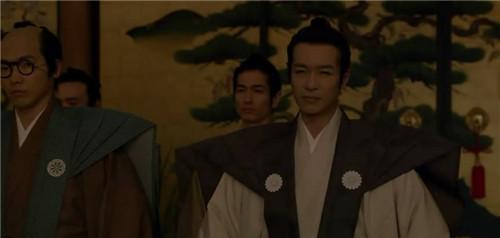Chinese surname has a thousand years of inheritance history, at first, the surname originated from the totemic belief in the primitive tribe, and the surname of a tribe was basically named by totem. Later, after the development of the Western Zhou feudal system, the place name of the sub-fief or the surname given by Zhou Tianzi became the main source of the surname.

Today, there are as many as 5662 surnames in China, which can be called the country with the most surnames in the world. However, in Japan, which was keen to emulate China's ancient feudal dynasty, is the origin of their surname related to our country?
In fact, in addition to writing in Kanji, Japanese surnames do not have much to do with our country. Before the emperor appeared, the Japanese did not have a surname. Moreover, not only did they not have a surname, but they also lived a rather primitive and barbaric life, because the Island of Japan where they lived was isolated from the world, and the light of feudal civilization did not shine into this land.
It was not until the emperor appeared later that surnames and surnames began to appear in Japan. In China, the clan generally refers to the clan, but in Japan it has become a political family that is in charge of a certain department of the imperial court. For example, in ancient Japan, the department in charge of sacrifices in the imperial court was called the Taboo Department, and all the clans in this department were called the Taboo Clan.
As the power of these court politicians grew stronger, they had a new name, called the shogunate. With the emergence of the first Kamakura shogunate, the Japanese emperor basically became a puppet and had no real power. Later, the class of samurai who served as mercenaries of the shogunate expanded rapidly, and their status was lower than that of the rulers of the shogunate, so they could not bear the name of the shogunate's clan until they reached adulthood.
But the question is, no matter which shogunate, the ancient Japanese did not have a surname, only a surname, so how did the Japanese distinguish between each other? In fact, around the 9th to 10th centuries AD, a new naming method appeared in Japan, called Miaozi, that is, a new surname after a family was separated from the clan itself, which was created to distinguish different individuals under the same clan. It has the same effect as the surname.
For example, in Japan, there is a clan name called Fujiwara, but it is not always possible to call the Fujiwara clan of the Fujiwara family, so that there is a so-called "Fujiwara XX" name.
However, even with miao characters, the Japanese ancients did not like to use them very much. Especially for the emperor, from ancient times to the present, they have only a surname, not a surname. Because in the eyes of the Japanese people, the emperor is the descendant of the gods, and it is a lineage of ten thousand generations, and there is no branch, so there is no need to take a surname to show the distinction. To this day, the Japanese emperor still maintains the tradition of having only a surname and no surname.
As a way to distinguish the Japanese people, they also do not like to use it, after all, the clan name can represent the glory of their family. Fortunately, there was no household registration system in ancient Japan, otherwise they would have been killed by this group of people.
However, in modern times, it is different, especially since the Meiji Restoration, when the household registration system was established, and the importance of names was reflected. In order to facilitate the record, Emperor Meiji specially promulgated the "Order for the Tolerance of Civilian Tsuneyoshi Characters", which stipulated that every Japanese person must give himself a surname. It was also from this period that every household in Japan had a surname, and it was also passed down from generation to generation as a family tradition.
Perhaps because the Japanese people are resistant to the surname, and because the emperor insisted on taking it, they generally took it quite arbitrarily. Many of them are called by place names, such as Yamashita, Watanabe, Tanabe, etc., and Nishimura, Okamura, and Morimura are also place names, which shows how willful the Japanese people are in taking their surnames.
Among them, the most bizarre and funny is such a surname, no matter what kind of clan name the girl uses, after translating into Chinese will make the Chinese people laugh off their teeth. This surname is: my grandson, it is not difficult to see that the Chinese translation is the meaning of my grandson, and Chinese netizens will inevitably call "too cheap" after listening to it. However, then again, Japanese people take their surnames at will, and they can't be so casual!